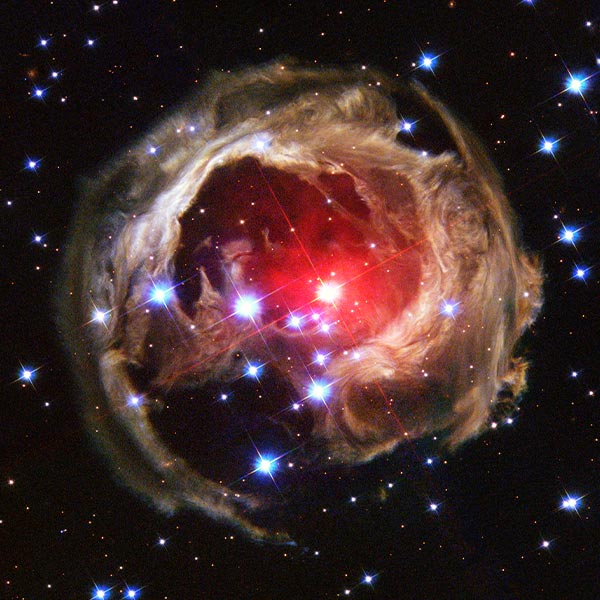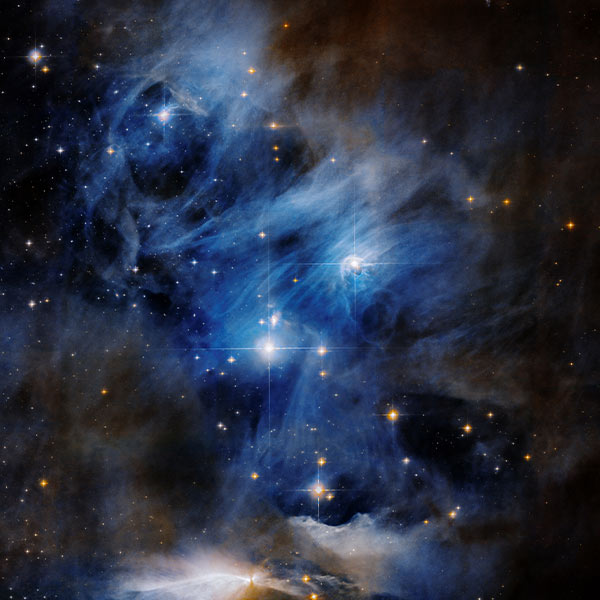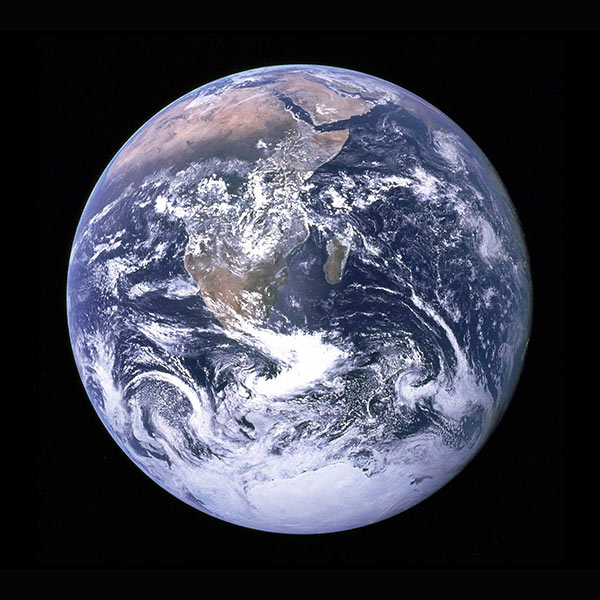Subtotal: $
Checkout
I walked out the gate of NASA’s Goddard Space Flight Center yesterday and into retirement after thirty-seven years. My career at NASA has been the stuff of dreams for a ten-year-old boy of my generation: I designed spacecraft. More specifically, I designed future spacecraft, usually without astronauts, for the purpose of discovering raw knowledge about the universe. Somewhere around 120 missions floated across my desk and through my computer as I worked; most were scientific payloads that stared at the cosmos, or at the Earth, or at anything and everything that floated in between. I also had the chance to design probes and landers to drop into the hell of Venus or plunge through the crushing gas of Saturn or visit the ice-bound clusters of space debris spinning silently around the sun. I designed mechanical eyes that stare into the void of space, trying to catch a glimpse of particles or waves completely invisible to anything but the machine.
My job was to design the future – and often the future was far off. James Webb Space Telescope launched on Christmas 2021. I had worked on the preliminary concepts back in the 1990s. Many of my designs never went further than a crowded review, a polished presentation, or a filing cabinet. But some were built, and they grabbed for knowledge far above the aging buildings of the sprawling Goddard campus. Some of my earlier projects have even finished their run, taken a bow, and dropped into the sea or burned up as an unnoticed flash in the sky. As I walked out that gate yesterday, I left behind designs that today’s toddlers may one day launch.
One of my roles at NASA was speaking at schools and organizations about our work. For schools, the goal was to inspire students to shoot for something higher than playing video games. For adults, it was seeing that their tax money was being well spent. Hearing me talk gave them a taste of what they were buying.
One day I drove up to Pennsylvania to speak to a group of engineers who were not part of the aerospace world. At the end of the talk we had lunch, and I sat at a small conference table, eating bland boiled chicken and talking about the universe. Hubble Space Telescope had been very busy, and the surreal pictures of the universe it took were flooding the press. The pictures were beyond anything a science-fiction artist could have imagined, and the scale of the objects being photographed simply wouldn’t fit into our minds.

Red super giant, Monocerotis Photograph by NASA
As the lunch progressed, and the polite conversation began to relax, it quickly became apparent that everyone at the table was Christian, and our pragmatic scientific descriptions gave way to language of worship. As we excitedly described our impressions of the staggering wonders of God’s creation that were flowing down from Hubble, it seemed we were all left breathless. This was not a Christian event, but this little group discovered that we shared a Father, and a growing excitement about his glory being revealed in new ways. What I experienced at that little engineering conference was exactly why my years at NASA mattered.
It was inevitable that in every one of my NASA speaking events someone would ask about the cost of exploring space. Implicit in the question is the view that the money spent on space science should be spent on social needs or environmental needs or whatever the questioner feels is more important than space. At first that question would irritate me because I knew it isn’t an either-or situation – you can have a space program and you can meet social needs. But I still spent a lot of time wrestling with the answer. Of course space exploration was expensive, and of course it was important – but why?

The Chamaeleon Cloud Complex photograph by NASA
My answers evolved over the years. Early on I would answer that space science is seeking unknown raw knowledge. By its very nature we have no idea if the raw knowledge we learn will change the world, or end up filed away under “Interesting Trivia.” You can’t know what good the unknown will do you until it is no longer unknown. That gives NASA a very unique place in the world. It takes money to gain raw knowledge, and a commercial business is very unlikely to invest money without any idea if there will be a gain from it. Like panning for gold, once that raw knowledge is in hand, it can be sorted, categorized, and put to use. NASA’s purpose is to take that risk and find that gold.
The challenge with raw knowledge is that its use is rarely obvious. Those tiny chips of gold are added to a growing understanding of the universe; buried as data points in computer models, variables in equations, and the keystones of hotly debated theoretical papers only understood by a handful of experts. Yet our knowledge of the universe matters because we live in the universe. We study planets to better understand the only planet specifically designed for us, as far as we know. We study stars to understand our star and its dangerous and surprisingly temperamental moods. Every spoonful of data gathered by scientists is added to the brew creating new and better computer models of our delicate oceans, our unpredictable atmosphere, our geologic grumblings, and countless other pieces of this puzzle called existence.
Scientists often resort to presenting the purpose of their research in cataclysmic terms. For example, “We need to study asteroids because one day the big one is going to blow a hole in the side of the earth.” Saving humanity from complete annihilation is something that most people can rally around. Despite being fodder for Hollywood blockbusters, that technique is generally based on reality and serves a purpose – it moves obscure mountains of scientific data into the spotlight in a way that can be understood by most taxpayers.

Planet Earth Photograph by NASA
Most of us are familiar with the weather satellites that give us spectacular, real-time details about what the skies are about to throw at us. That system was built on countless little blocks of obscure raw knowledge. The tiny amount of knowledge about hurricanes collected before the year 1900 was not enough to save the eight thousand people who died in Galveston, Texas. Today we can watch every twitch of the monster hurricanes on the Weather Channel days before they move ashore. That scientific knowledge didn’t just suddenly appear. It was built over decades from fragments collected in numerous ways.
The search for raw knowledge was a difficult concept to explain, so in time, I added an additional response: every single dime poured into NASA and space science eventually pours back out into people’s pockets. We don’t stick stacks of dollar bills into rockets and throw them into space. Even the raw materials and fuel which are launched into space benefit working people who were paid to mine them, process them, and transport them. For thirty-seven years my salary went into the cost figures for the spacecraft I designed. I didn’t burn it; I used it to raise my children and to care for my son’s medically intensive needs; I gave portions to my church and charities; I bought things and handed over the money to businesses to pay their employees. Somewhere buried in the massive ten-billion-dollar budget for the James Web Space Telescope is my salary, which has long since left my bank account and passed through untold hands throughout our economy. Meanwhile, in orbit, the little machine built with that money is busy filling textbooks, research papers, and occasionally changing our world.
NASA is unintentionally exploring the glory of God. Every batch of scientific data downloaded from a silver-flecked spacecraft declares his glory.
But my response to that question changed again when I walked out the gate at Goddard yesterday: I was no longer speaking for NASA. As a government employee, I had thick documents listing all the things I could and could not say and do. I find it a bit ironic that a federal employee gives up quite a bit of the First Amendment when working under the government designed to protect the First Amendment. One of the things I could not do at NASA-sponsored speaking engagements was answer the question about the cost of space science the way I would have liked to – the way it was answered over a plate of bland boiled chicken around a table in Pennsylvania where I was surprised to discover that I ate with brothers and sisters in Christ.
I love God more because of space science, and I am not the only one. A coworker of mine who was heavily involved with running the Hubble Space Telescope and a great lover of God came to our church to show images taken by Hubble and correlate them to Psalm 19:1: “The heavens are telling the glory of God. …” At the end of that presentation a roomful of people sat stunned, in awe of their great God, dazzled by his glory, and more in love with him than ever before.
NASA is unintentionally exploring the glory of God. Every batch of scientific data downloaded from a silver-flecked spacecraft declares his glory. Each fuzzy photo of the furthest reaches of the universe makes our understanding of the greatness of our Creator grow. We are the first generation to see these far expanses of God’s glory. Even in my lifetime, our wonder at the God whom we worship has grown to breathtaking levels, thanks to countless machines racing through the void of space declaring the glory of God. It is he who gives us all we needed to discover it: the materials, the math, the physics, the creativity, the right amount of gravity, the energy density in our fuel chemistry, and so much more. Knowing how precisely everything that we need for spaceflight has been provided, and the staggering wonders being revealed by flying into space, I can only conclude that God intends us to go and be intoxicated by what we discover about him there.
Drew Jones is a recently retired NASA aerospace engineer. He has written radio comedy shows, plays, musicals, and articles about sailing. He is married to a poet and has two daughters on earth and a son who resides with his Savior.
Already a subscriber? Sign in
Try 3 months of unlimited access. Start your FREE TRIAL today. Cancel anytime.






Taylor Reed
Does our wonder and reverence for creator and creation come anywhere close to that of first nations peoples? Has our endless quest for more knowledge, and access of all information at all times for all people, led to the development and discernment of wisdom and purpose necessary to live well on this planet here and now and into the future? Has it helped us to love others and steward creation? Lord have mercy. God, give me the humility to be quiet and listen. Help me to recognize those doing good work, to come alongside them and grow.